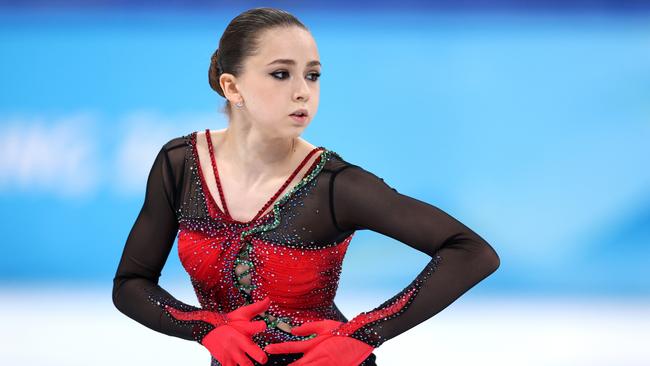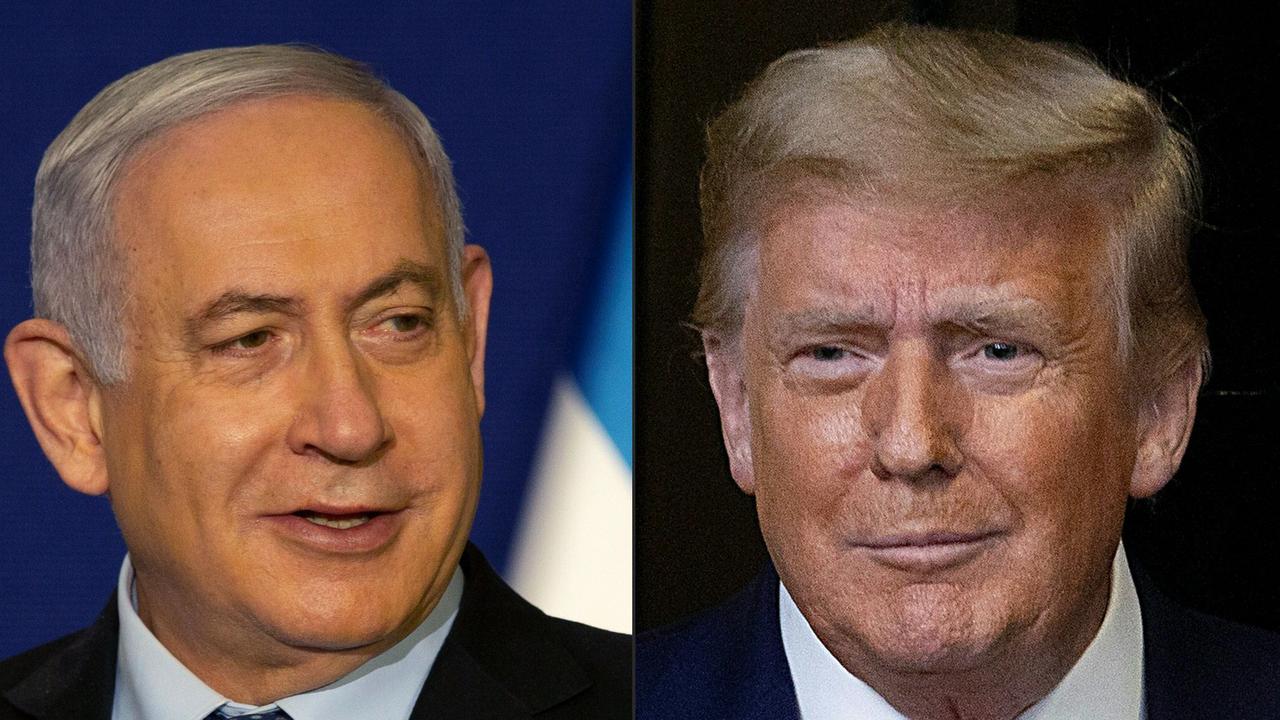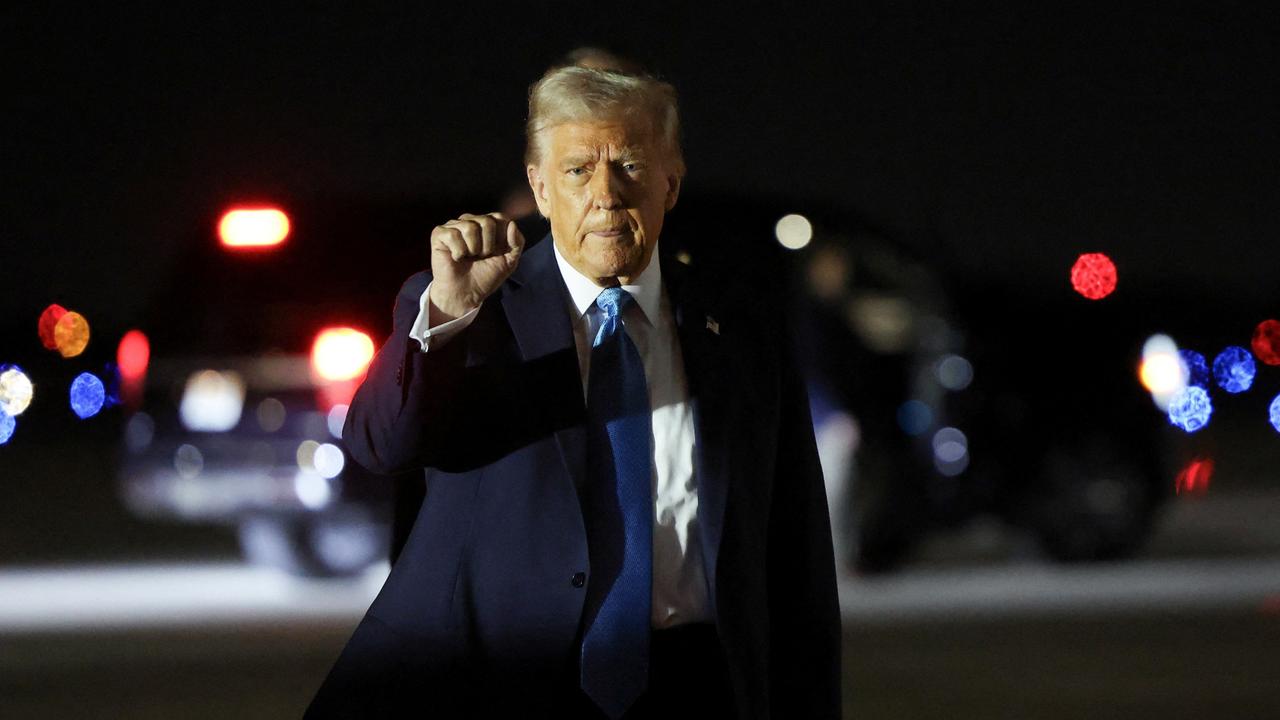Deep freeze of Putin’s sports empire
Decades of lavish spending allowed Russia to gain influence at the highest levels of global sports but the country’s era of ‘sportswashing’ has abruptly ended.

With Russian troops gathering on the Ukrainian border and superpowers in disagreement about Vladimir Putin’s intentions, it was only two weeks ago when the rest of the world reached a consensus about Russia: Its star figure skater should not compete at the Olympics.
An international sports court’s decision to clear Kamila Valieva after the 15-year-old phenom tested positive for a banned substance was greeted with ferocious opprobrium from the US and its European allies. To them, this was simply the latest example in global sports of Russians breaking the rules and escaping consequences.
The message they saw from a defiant Russia during the latest doping saga was clear: A country that spent 20 years thumbing its nose at international sports authorities wasn’t about to stop.
Decades of lavish spending allowed Russia to gain influence at the highest levels of global sports, where it found willing partners. It was a campaign that brought the Olympics and the World Cup to Russia in the last decade, installed Putin associates in powerful governance roles and cleared the way for Russian athletes to compete on the world’s stage — despite the revelation of an elaborate, state-sponsored doping scheme.
But when the invasion of Ukraine began, the era of Russian “sportswashing” abruptly ended, at least for the foreseeable future. As the global economy froze Russia’s assets, the sports world froze out its athletes.
Over a matter of hours this week, the International Olympic Committee recommended that all athletes from Russia and its ally Belarus be banned from international competitions, and soccer’s world governing body effectively threw the men’s national team out of World Cup qualifying. The last ban of this scale was issued to apartheid-era South Africa.
The harsh economic sanctions levied in response to the Ukraine invasion were meant to isolate Russia without resorting to military escalation. And until this week, sportspeople had been largely insulated, as institutions that previously claimed to be apolitical explicitly entered the fray of global events.
The cheating scheme that operated out of Russia’s anti-doping laboratory resulted in the loss of their flag and anthem privileges at every Olympics since 2016, but not the suspension of athletes, who competed under the banner of the Russian Olympic Committee and collected hundreds of medals. “If the US had done the same government-sponsored doping that Putin did, it also would have gotten away with it,” says Olympic historian David Wallechinsky. “Because money talks.” As others questioned the leniency of the IOC’s punishment, Putin attended the opening ceremony for the Beijing Games, where his country was officially barred. Then the Valieva affair became another instance of what others perceive as a wrist slap against the Russians. The teenager stumbling off the podium allowed the IOC to sidestep responsibility for accommodating Russia.
“I think they have been too soft in general, allowing Russia to compete with only minimal sanctions,” said Olympic historian Bill Mallon.
Russia attained this level of power in part by being willing to pay for it. In an era when many countries baulk at the financial and moral costs of hosting global sporting bonanzas, Russia was happy to foot the bill and burnish its image, and its partners chose not to alienate a nation with access to a gusher of cash.
The 2014 Olympics in Sochi brought winter athletes to a subtropical resort without natural snow, and the 2018 World Cup was staged in a dozen locations across the country. FIFA president Gianni Infantino later called the tournament “the best World Cup ever” as Putin presented him with Russia’s “Order of Friendship” medal.
But following the IOC’s recommendation, soccer formally sanctioned Russia. The European game’s governing body, UEFA, cut sponsorship ties with the state-backed energy giant Gazprom, turning off a faucet worth tens of millions of dollars a season.
The IOC also went after Putin by name, stripping him of an Olympic honour for violating the Olympic Truce, which is supposed to preserve peace around the period of the Games. Eight years ago, the IOC had granted Putin more latitude, as Russia moved to annex Crimea before the Sochi Winter Olympics were even over.
Shortly after that, the Russian doping scheme came to light. “They were really weak on the Sochi doping scandal,” Wallechinsky said of the IOC. “They should have just gotten rid of Russia for a while.”
The reaction to the Ukraine invasion from the sports world had been piecemeal until the IOC’s recommendation gave federations blanket cover to do what they hadn’t: bar Russian athletes.
Even fencing is now in the uncomfortable position of distancing itself from patrons. International Fencing Federation president Alisher Usmanov, a Russian tycoon who is close to Putin and friendly with IOC president Thomas Bach, suspended himself on Tuesday after he was hit with sanctions by the European Union on Monday.
“I believe that such decision is unfair, and the reasons employed to justify the sanctions are a set of false and defamatory allegations damaging my honour, dignity and business reputation,” said Usmanov, who is benched “until justice is restored.” Fencing found itself in the eye of a geopolitical storm because it was one of the many sporting organisations that accepted Russia’s financial assistance – often with parallel investment from China and countries in the Gulf. The cash of Russian oligarchs has sluiced through the coffers of international sports over the past decade, even as allegations of Russian doping and other offences piled up.
In the US, Russian oligarch Mikhail Prokhorov spent more than $US200 million ($273) for a controlling stake in the Nets and a piece of the arena they were hoping to build in Brooklyn. He rarely bothered going to games. Prokhorov seemed more interested in a sport that merged two of his favourite things: skis and guns. As the president of the Russian biathlon federation, he oversaw a squad that won three medals in Sochi – and then was ensnared in doping whistleblower Grigory Rodchenkov’s allegations.
Prokhorov isn’t the NBA’s problem today: He flipped the team less than a decade after his purchase in a deal that valued the Nets at $US2.35 billion.
Money may have been a major factor in the last 20 years, but Russians also have decades of history on their side. As part of the Soviet Union’s efforts to fight the Cold War against the backdrop of sports, they became so successful in events such as figure skating and gymnastics that they effectively redefined them, both technically and politically.
Until this week, persuading international sports federations to ban Russians was a difficult proposition, in part because Russians occupy many of the leadership spots in those organisations. In the International Skating Union, the first vice president and the top official specifically for figure skating is Alexander Lakernik, a Russian who has held the position since 2016.
In that time, female Russian skaters have become all but unbeatable, winning individual gold and silver medals in the last two Olympics even as the coaching methods have raised concerns about child welfare.
With the war in Ukraine intensifying, even figure skating is shifting its position. It barred the Russians from the March world championships.
The Wall Street Journal


